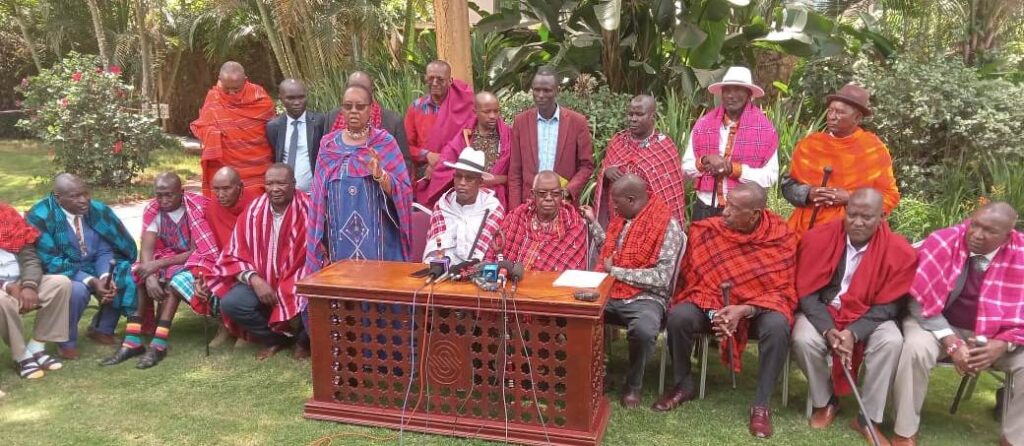
By Benard Mulwa
Professions and Cultural leaders from a section of Masai community from Kenya and Tanzania has taken to task the colonial British government over 1904 and 1911treaties which has had a profound and enduring impacts on the community signed during the colonial era.
According to the leaders who held deliberations in Nairobi today, said these agreements entered in to without proper representation or consent from the Masai people, which led to the dispossession of significant portion of their ancestral lands resulting in displacement and severe socia-economic challenges for their community.
Speaking to journalists, Mr. Anthony Leaduma said “the loss of our lands disrupted our traditional way of life, disintegrate our cultural heritage and weaken our capacity to sustain our selves and future generations.” adding that the atrocities included forceful evections, loss of lives and livelihoods, separation of clans and families.
The leaders also observed that both treaties and conquest were done in the name of Crown, and Charles III, setting the stage for a bitter clash with British Colonial government should their terms fail. Among their demands, Colonel retired Richard Leiyagu, Patron of the Samburu elders said the Masai of Kenya never signed the independence document in Lancaster House and they would like an opportunity to do so, adding that on Intellectual property rights, “we acknowledge the positive role that the Britain and the Commonwealth played in building the Masai Brand, but we are now appealing for compensation and a greater share of our Intellectual Property Rights, also any artifacts and spiritual artifacts that may be in your possession,” he said.
The loss of land is estimated at over 56 percent of their ancestral lands from 55,000km2to 42,000km2 around 7,660,255acres. The balkanization of Masai into subgroups a dived and rule tactic, losing their unity resulting in today’s political divisions and negotiating power, this also resulted in inter-clan in Narok, Laikipia and Kajiado.
In their petition, the leaders further demanded land restitution and compensation plan to rectify the dispossession of their ancestral lands, “a just and fair compensation is therefore a necessity,” the statement reads in part.
The Masai of Tanzania appeal to the King to exert its influence on a Commonwealth Nation of the United Republic of Tanzania to stop the dispossession of the Lands of Ngorongo, a legacy left behind by the colonial government who dispossessed the Masai of lands such as Serengeti and parts of Ngorongo.
